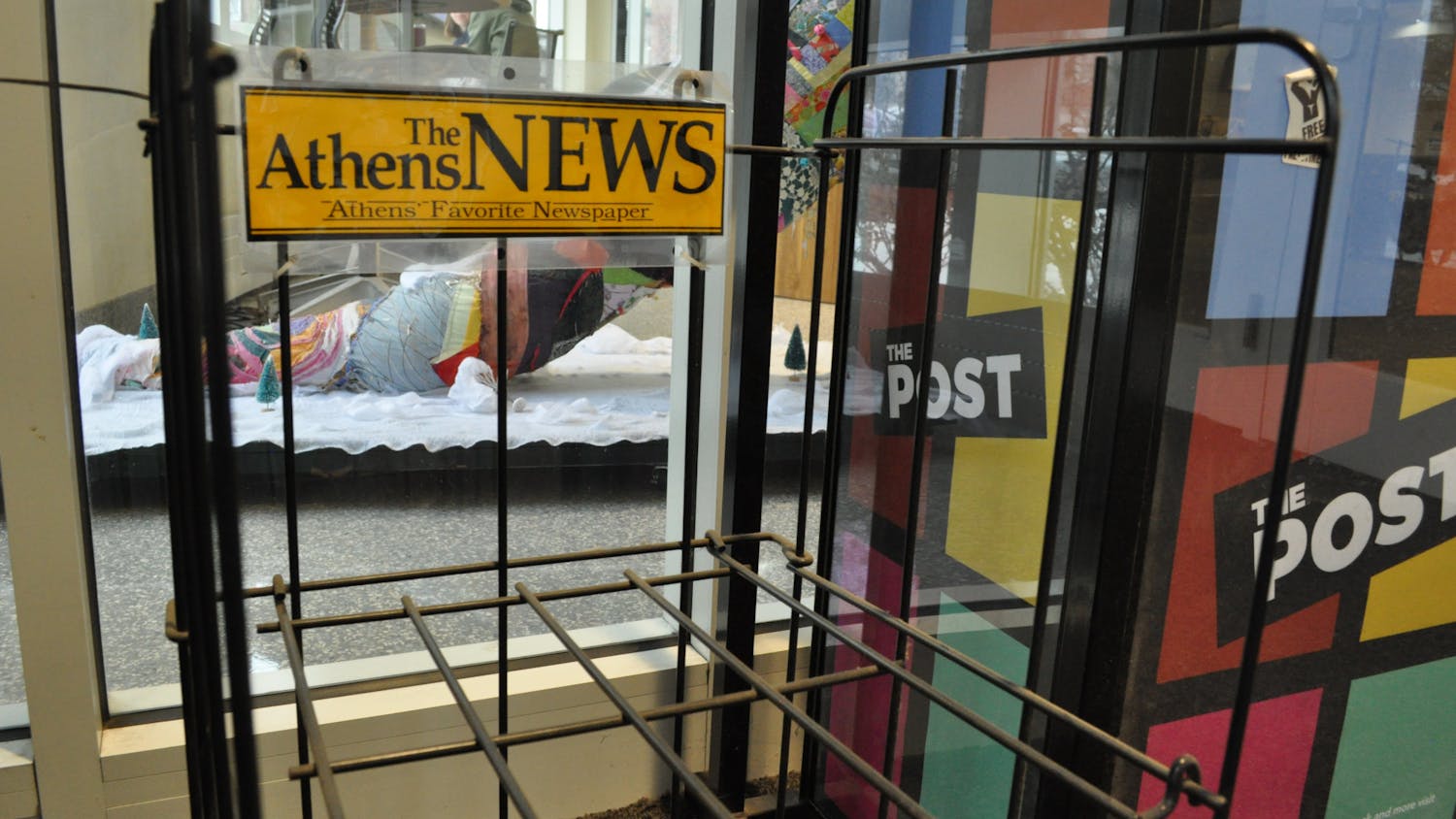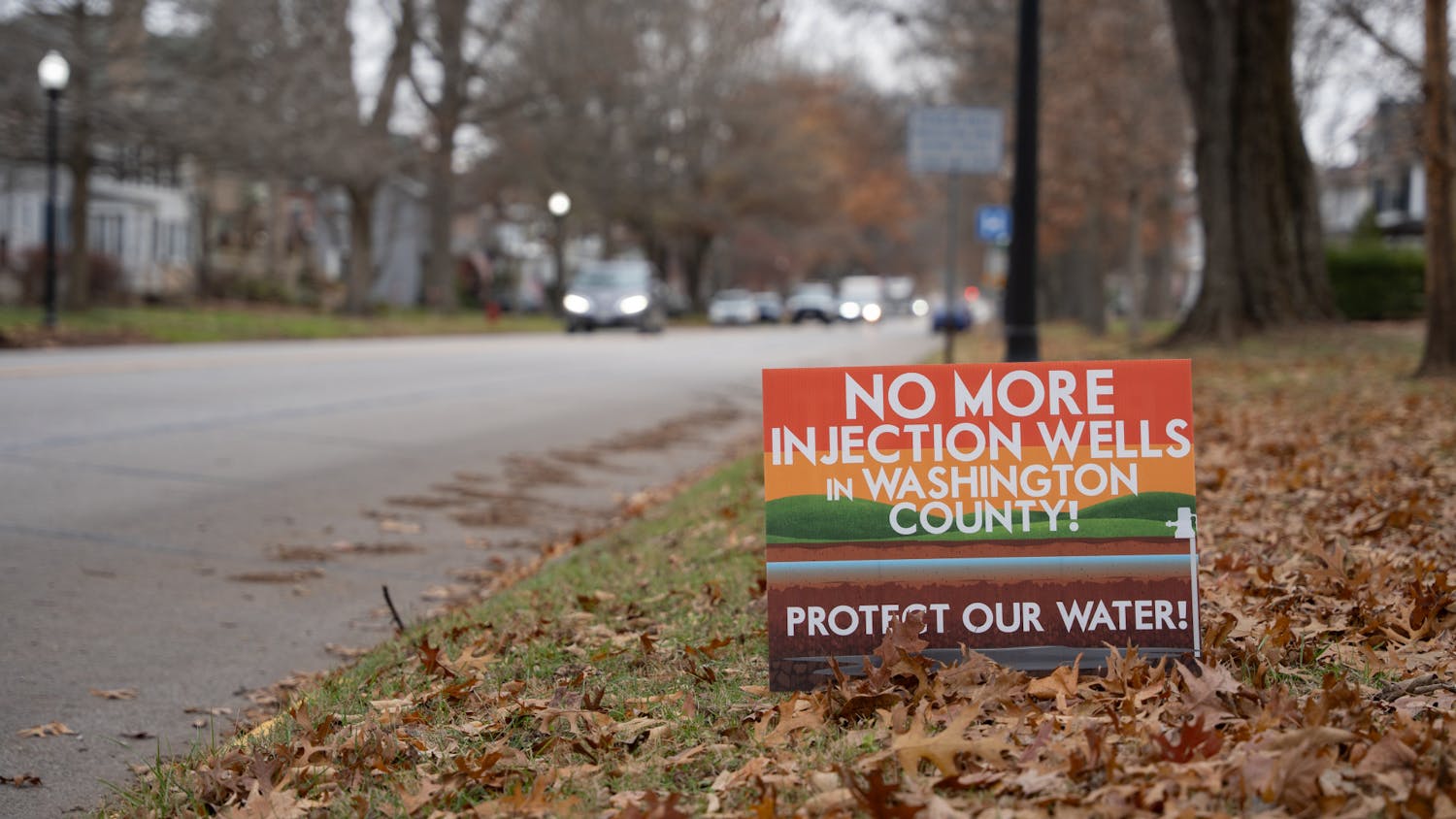Ohio University’s Office of Information Technology increased the bandwidth for daytime Netflix users so their programs can stream more efficiently during the day without excessive buffering.
OIT increased the bandwidth from 50 megabits per second to 200 mbps after many students complained.
The move comes after the office confirmed in a Post article that a bandwidth cap was responsible for problems loading Netflix while using OU’s Internet. Students also filed a petition on Change.org, for more bandwidth.
The cap was put in place in 2011 after Netflix contributed to making OU’s Internet “unusable” during finals week, said Sean O’Malley, OIT’s communications manager, in a statement.
The cap limits bandwidth available to Netflix from 8 a.m. to 10 p.m. to allow for more efficient use of the Internet for research, academic and administrative uses, O’Malley said.
The previous limit of 50 mpbs was less than two percent of OU’s 3,000 mbps total bandwidth, and similar in quantity to some residential connections.
“We are not trying to take away your Gilmore Girls re-runs,” O’Malley wrote. “We also are looking into creative ways to manage our bandwidth that will make the most efficient use of our pipeline during the day.”
O’Malley said OU spends $175,000 a year for its main Internet service.
“We can’t just let Netflix have as much of that capacity as it likes,” he said.
Netflix usage at OU quadrupled in the past three years, with 20 percent of that increase coming this semester, O’Malley said in his statement.
At peak times, up to 40 percent of OU’s bandwidth is used by Netflix, O’Malley said in a previous Post report.
The petition posted on Change.org, called “Give us our Netflix back!,” has more than 550 signatures since its creation on Wednesday. The petition seeks 3,000 signatures and Kyra Reisenfeld, the petition’s creator, said she may bring the petition before OU’s Student Senate.
“We, as hard working students here at Ohio University, need a mind-numbing break during our daily strenuous activities,” the petition states. “It is our right to stream movies/TV shows/documentaries/whatever you please to entertain our minds that are constantly consumed with enhanced academic intelligence.”
Reisenfeld, a sophomore studying biological sciences who started the petition, said she’s heard many students complain about the cap because students pay for Internet services as part of their tuition and fees.
“I think that if quadrupling the cap solves the problem, that the student body will be more than happy as long as they are able to stream Netflix normally” Reisenfeld said in an email.
Room and board, tuition, fees and a meal plan cost about $22,000 for in-state students for the 2014-15 academic year.
Many students who signed the petition also complained that some professors require students to watch documentaries and other content online — much of it easily available on Netflix.
“I pay for my Netflix, I pay for Internet with my housing, so why do they think they can take that away?,” Jessica Mace, a sophomore studying wildlife and conservation biology who signed the petition, said in an email.
Netflix users currently pay $7.99 or $8.99 a month for streaming service, depending on when they originally signed up.
“By the time the petition showed up, it was already clear from social media traffic that many students were being affected, and we were already weighing our options to alleviate the problem,” O’Malley said in an email. “We want students to speak up when things aren’t working well.”
@Dinaivey
db794812@ohio.edu






